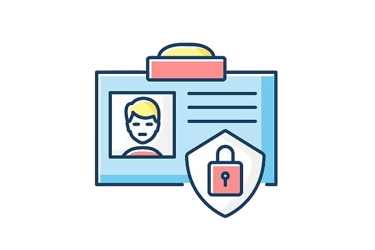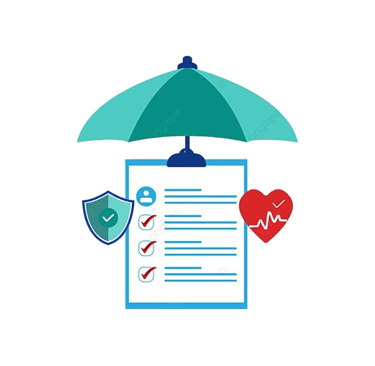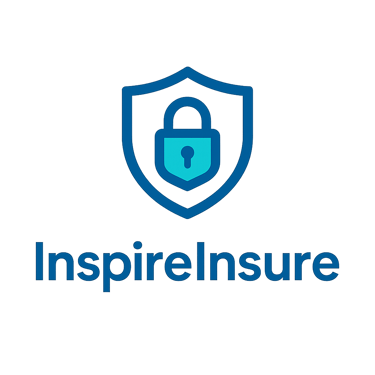Personal Insurance, Tailored for Freelancers
Auto. Renters. Cyber. Umbrella. Explore how personal coverage protects your work and lifestyle.


Safeguarding Personal Assets in a Freelance Economy
For self-employed professionals, gig workers, and solo entrepreneurs in the U.S., the line between personal and professional liability is increasingly blurred. Activities like commuting to client meetings or maintaining a home office can expose individuals to significant risk. Therefore, personal lines insurance has become essential.
This category hub on InspireInsure offers a clear roadmap for freelancers and microbusiness owners looking for vital coverage. Whether dealing with equipment, auto-related liabilities, or cyber threats, our content provides accessible, evidence-based insurance guidance.
For quick recommendations, check out our [Best Personal Insurance for Freelancers in 2025] or take our [Coverage Check Quiz] to evaluate your risk profile.


Defining Personal Lines Insurance in the Freelance Context
Personal lines insurance comprises policies tailored to mitigate everyday risks involving individual property, mobility, health, and digital identity. Unlike commercial insurance, which safeguards business operations and employees, personal insurance addresses exposures in your private life—many of which overlap with freelance work.
Illustrative policy types include:
Personal Auto Insurance
Renters and Condominium Coverage
Homeowners Insurance
Umbrella Liability Insurance
Pet Health Insurance
Identity Protection Policies
Scheduled Personal Property Endorsements (e.g., laptops, photography gear)












Why the Self-Employed Must Prioritize Personal Protection
Freelancers operate outside the purview of traditional employer-sponsored protections. This decentralization of responsibility demands proactive risk management.
Critical coverage needs include:
Vehicular incidents during client-related travel
Client injury on residential premises used for business
Cyberattack vulnerability from remote operations
Theft or damage to mission-critical personal gear








Core Personal Insurance Products for Freelancers
Auto Insurance with Business Use Accommodation
Relevance: For freelancers who use personal vehicles to conduct professional tasks, standard policies may prove insufficient.
Policy Structures:
Personal Auto with Business Use Endorsement
Rideshare or Delivery-Specific Coverage
Non-Owned Vehicle Liability
Insight: Always disclose the nature of professional use. Misrepresentation can void claims.
Explore further: [Best Auto Insurance for Freelancers in 2025]
Renters and Condo Insurance for Remote Work Environments
Challenge: Your landlord’s policy excludes tenant property and visitor liability—especially for work-related use.
Features to prioritize:
Property coverage (fire, theft, accidental damage)
Personal liability (for client visits)
Business asset sublimits (with optional endorsements)
Tip: Seek policies with “home office riders.”
Reference: [Do Freelancers Need Renters or Homeowners Insurance?]
Identity Theft and Personal Cyber Liability Insurance
Significance: Freelancers and solopreneurs—particularly those operating online—face increasing risk from identity theft, phishing, and credential theft.
Coverage Provisions:
Expense reimbursement for fraud resolution
Legal assistance
Cyber breach response and digital forensics
Deep dive: [Best Identity Theft Insurance for Freelancers]
Personal Umbrella Liability Protection
Why it matters: Standard auto and renters/homeowners policies cap liability coverage; umbrella insurance offers supplemental protection against catastrophic claims.
Typical use cases:
Hosting events with liability exposure
Legal action from client disagreements
Extended liability from social media or defamation claims
Recommended read: [Do I Need a Personal Umbrella Policy as a Freelancer?]
Scheduled Property Endorsements for Specialized Equipment
Problem: Default renters/homeowners coverage often excludes or undervalues business-critical tools.
Solution: Schedule individual high-value items under dedicated endorsements.
Examples of commonly insured freelancer gear:
DSLR and mirrorless cameras
Mobile workstations and tablets
Audio and video production hardware
See also: [Freelancers: Protect Your Equipment with Scheduled Property Coverage]
Cost Optimization via Strategic Bundling
Savvy freelancers can reduce costs by consolidating personal lines:
Auto + Renters = 10–20% discount
Homeowners + Umbrella = layered liability protection
Cyber + Identity Theft = digital defense suite
Advisory: Confirm whether your carrier provides bundling incentives tailored to home-based business owners.
InspireInsure Tools: Simplify Your Coverage Decisions
Freelancer’s Personal Coverage Checklist
Evaluates which policies are essential based on the operational model, asset profile, and geographic location.
Deductible-Premium Optimization Calculator
Simulates cost-benefit trade-offs for common deductible levels.
Personal Cyber Risk Audit
Pinpoints vulnerabilities in digital behaviors that increase insurance exposure.
Coverage Extension Request Template
A prewritten letter to help freelancers negotiate endorsements with insurers.
All tools are free. We only ask for an email to enable future updates and resource access.
Frequently Asked Questions
Frequently asked questions
Q1: Can I obtain personal coverage without forming an LLC?
Absolutely. Most personal policies are underwritten based on individual data, not legal structure.
Q2: Does regular auto insurance cover freelance driving?
Not always. Declare professional use to ensure proper claims eligibility
Q3: Are business electronics covered under renters insurance?
Only partially. Policies often cap business property—consider scheduled endorsements.
Q4: What’s the most economical coverage strategy?
Bundling remains the most efficient way to reduce cumulative premium costs.
Q5: Is personal cyber insurance worthwhile?
Yes, especially for those relying heavily on digital infrastructure.
Featured Blog
Insurance
Tailored cyber and business insurance for freelancers.
Support
Contact
info@inspireinsure.com
© 2025. All rights reserved.
